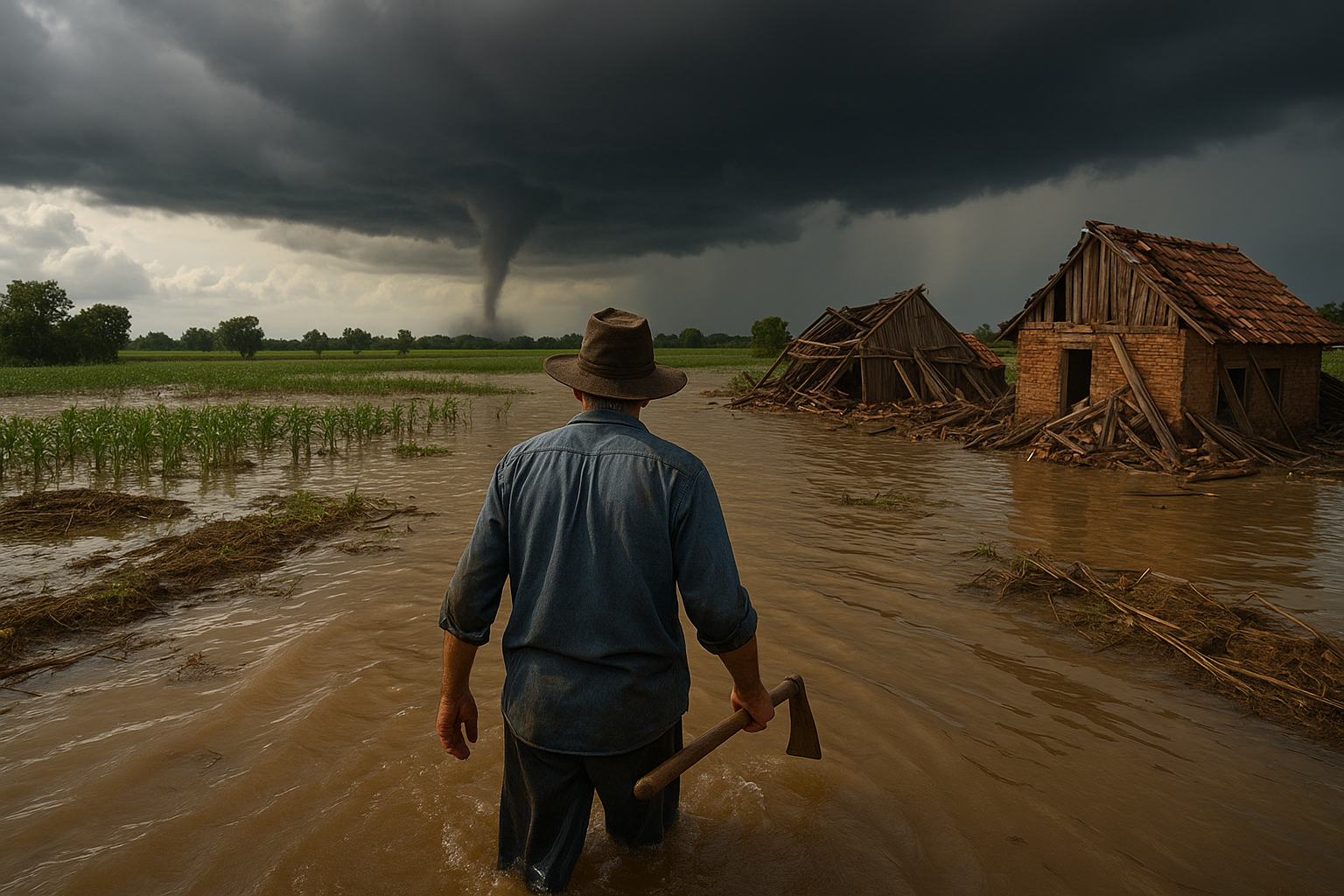Adapting for Tomorrow: Rethinking Resilience in an Era of Global Climate Crisis
“Rethinking Resilience: Adapting to a Changing Climate” by WRI, SEI, and IIED redefines resilience as the power to adapt, transform, and thrive amid climate disruption through equity, innovation, and nature-based solutions. It calls for just, inclusive, and forward-looking systems that unite governance, finance, and communities in confronting a changing planet.

The report "Rethinking Resilience: Adapting to a Changing Climate", developed jointly by the World Resources Institute (WRI), Stockholm Environment Institute (SEI), and the International Institute for Environment and Development (IIED), presents a powerful reassessment of how humanity must respond to a rapidly warming world. It opens with a sobering picture of the global climate crisis, soaring temperatures, destructive floods, prolonged droughts, and intensifying wildfires that have upended lives across continents. The authors stress that the poorest and most marginalized populations, despite contributing least to global emissions, bear the heaviest burdens. The document urges a shift from mere survival to transformation, where resilience is not simply the ability to recover from shocks but the power to adapt, evolve, and build fairer, more sustainable societies.
From Recovery to Reinvention
The report argues that traditional resilience frameworks are outdated, focusing too heavily on rebuilding after disasters rather than preparing for the next one. It calls for anticipatory adaptation, policies, and systems that evolve before crisis strikes. This includes climate-resilient farming practices, renewable energy systems that reduce dependency on fossil fuels, and nature-based defenses such as mangrove forests, wetlands, and reforestation. Real-world examples, such as African farmers adopting drought-resistant crops and Pacific islanders rebuilding with eco-friendly infrastructure, illustrate how communities can turn vulnerability into opportunity. The message is clear: resilience is not static; it is a living, dynamic process shaped by local experience, innovation, and inclusion.
Economic Transformation in a Warming World
Climate change is no longer just an environmental issue, it is rewriting the rules of the global economy. The report details how extreme weather is disrupting supply chains, inflating costs, and threatening jobs. It urges governments and businesses to adopt "climate-smart" financial systems that recognize environmental risk as economic risk. Tools such as carbon pricing, green bonds, and sustainability-linked investments are positioned as key to building future-ready economies. Yet the authors also see adaptation as an engine for innovation. Green entrepreneurship, circular economies, and community-based industries can generate employment while restoring ecosystems. The challenge, they warn, is ensuring that these new economic models serve people equitably rather than deepening inequality.
Governance, Knowledge, and Nature-Based Solutions
The backbone of resilience, according to the report, is good governance and informed decision-making. Adaptation strategies must be embedded within national policies, urban planning, and public finance systems. Centralized approaches often fail; instead, decentralization empowers local governments to craft solutions suited to community needs. Technology is another pillar, AI-driven climate modeling, satellite monitoring, and early warning systems can transform preparedness. But the report cautions against an overreliance on high-tech tools that exclude poorer nations. It calls for blending advanced data with traditional ecological knowledge, community networks, and local education. Ecosystem-based adaptation is central to this vision. Restoring mangroves in Asia, reforesting degraded land in Latin America, and protecting watersheds in Africa are presented as "triple-win" strategies, strengthening biodiversity, supporting livelihoods, and buffering climate shocks. Diagrams in the report vividly show how nature's health directly sustains human resilience.
Building a Just and Inclusive Future
At the heart of the report lies an insistence that resilience must be just. The authors introduce the concept of "just resilience," which merges climate adaptation with social equity. Women, indigenous peoples, and low-income groups must not be sidelined but recognized as agents of change. Financing remains a persistent obstacle; the "resilience finance gap" runs into hundreds of billions annually, particularly for developing nations. The report calls for reforming global financial systems to ensure that funds reach the most vulnerable rather than being trapped in bureaucratic pipelines. Innovative instruments such as resilience bonds and community-based microfinance are cited as promising solutions.
In its final passages, the report turns philosophical, framing climate change as a moral and collective test of humanity's capacity for empathy and foresight. Resilience, it concludes, is not a technical goal but a moral choice, a commitment to justice, sustainability, and shared survival. To adapt, in this sense, is to redesign civilization itself: to transform crisis into opportunity, and vulnerability into strength. Through its blend of research, storytelling, and vision, "Rethinking Resilience" stands as both a warning and a roadmap, a call for courage, cooperation, and imagination in the face of an uncertain climate future.
- FIRST PUBLISHED IN:
- Devdiscourse









